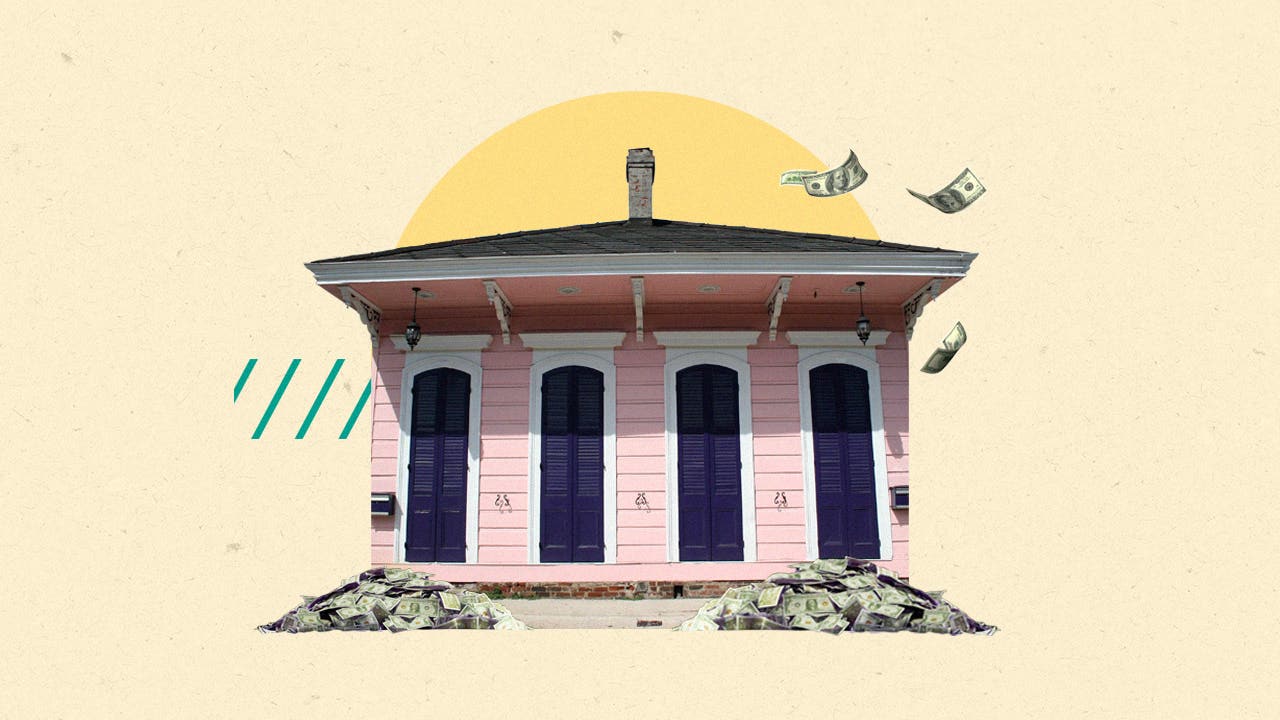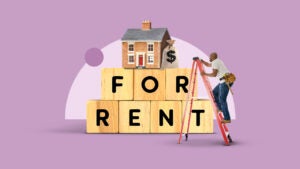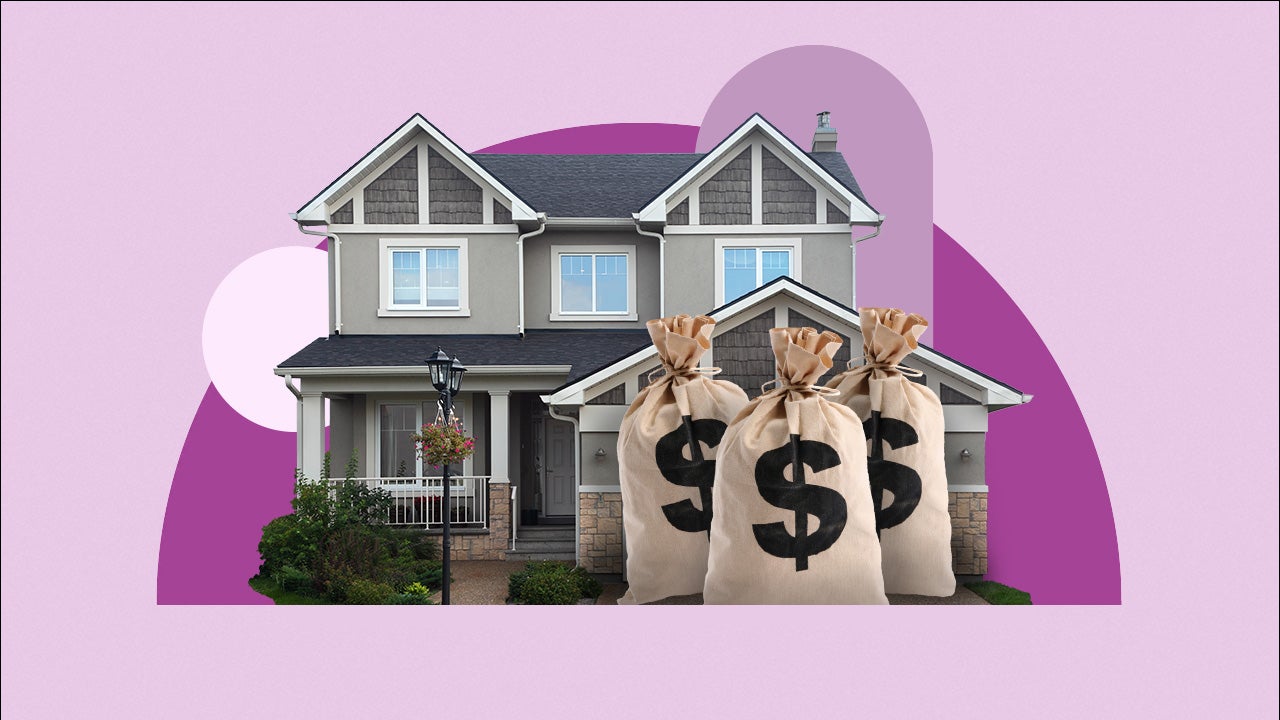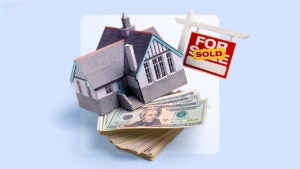What is a cash offer on a house, and should you make one?

Key takeaways
- A homebuyer who makes a cash offer intends to pay in full, with no mortgage or other type of financing.
- Cash deals are more appealing to sellers than financed deals, because they close faster and are less risky.
- Many cash buyers are home flippers or investors. Cash buyers who intend to live in the home tend to be older, repeat homebuyers.
With housing inventory still scarce, homebuyers in hot markets are still experiencing intense competition. To make themselves more attractive to sellers, many buyers with deep enough pockets aren’t bothering to finance the purchase — instead, they’re making all-cash offers. Here’s everything you need to know about making a cash offer on a house.
What is a cash offer on a house?
All-cash offers don’t involve a briefcase full of unmarked bills, but otherwise they are just as they sound. With a cash offer, the buyer intends to pay for the home in full, out-of-pocket, with no outside funding. This takes the need for securing a mortgage out of the homebuying equation, thus expediting the sale by eliminating the potential challenges of working with a bank or lender.
Who makes cash offers?
Not everyone who pays all-cash for a home intends to live there. Many all-cash homebuyers are house flippers or investors building a portfolio of income properties — buying the home outright means paying no interest to a lender while earning rental income from tenants.
All-cash offers are far from the most common way to purchase a home, but there are plenty of buyers who can afford to do it. According to a study from real estate data company ATTOM, all cash-purchases accounted for 36.6 percent of all U.S. home sales in the third quarter of 2023 alone. Data from the National Association of Realtors (NAR) shows similar results, with all-cash sales accounting for 29 percent of all existing-home sales in October 2023, a 3 percent increase over the previous year.
Buyers who are able to buy a home outright, without a need for financing, also avoid dealing with today’s high mortgage rates. Unsurprisingly, those who can afford it tend to be older, repeat homebuyers. It helps to have a lot of equity built up in your existing home: An April 2023 NAR study points out that more than half of older Baby Boomers and Silent Generation homebuyers paid for recent property purchases with cash, while just 7 percent of older Millennials and 6 percent of younger Millennials were able to do the same.
Pros and cons of an all-cash offer
If you can afford to buy a house without a mortgage, you’re likely in a good spot with your bank account. However, make sure you weigh the potential upsides and downsides first:
Pros
- You’ll save a lot of money in the long run. The biggest upside for having no mortgage is paying no interest, which can add up to big savings — especially considering how high mortgage rates have been lately.
- You’ll have a more attractive offer. A buyer paying cash looks especially appealing to sellers, since hiccups can happen with securing financing from a lender — for example, the appraisal can come back too low, or the buyer’s application can be denied. And when your offer is more attractive, you have more negotiating power.
- You’ll lower your closing costs. Since you won’t be getting a loan, you won’t have to pay a lender to review your application, check your credit or any of the many loan-related fees often due at closing. This can translate to significant savings.
- You’ll speed up the closing process. With no lender holdups or underwriting process to wait on, your path to the closing table will proceed much more quickly.
Cons
- You could stretch yourself too thin by tying up all your cash in the property and not having enough liquid assets remaining. If you find yourself house poor, with little money available for repairs or other life expenses, you may wish you’d held onto some of that cash. Make sure you have a solid emergency fund for “just in case” scenarios, and consider how stable your employment and income might be in the event of a recession.
- You might wind up skipping some important steps in the process. For example, when you get a mortgage, your lender will require an appraisal. With no lender to require it, you might be tempted to sidestep it, leaving you susceptible to paying a lot more than the property’s value.
- You’ll pass up some potential tax perks. When tax time arrives, homeowners with mortgages can benefit from writing off the interest on their home loan. If you pay in all cash, you won’t get that deduction.
Preparing to make an all-cash offer
- Not sure if you can afford a cash offer on your own? Consider hiring a company that can facilitate one. Outfits like Flyhomes and Homelight will pre-underwrite your loan and set you up with a short-term loan that allows you to make an all-cash offer. Knock and Orchard can also help buyers make cash offers.
- Budget for both the property and extra expenses. In addition to having enough money for the purchase itself, you’ll need to make sure that you can cover other costs such as property taxes, homeowners insurance and moving expenses.
- Make sure you can prove your personal finances. A seller isn’t going to simply take your word that you have the money: Get proof of funds from your bank in the form of documentation that shows you have the means to pay.
- Be ready to be more earnest. With no lender involved, the seller might ask to see a larger earnest money deposit when you sign the contract.
- Get a professional to assess what you’re buying. You’re paying a lot of cash, so once your offer is accepted, pay a tiny bit more for a home inspection to verify there are no major flaws or concerns with the property. And if possible, have a contractor walk through it with you to help you identify potential projects and how much they could cost you.
Next steps
The ability to pay all-cash for a property can eliminate a lot of the stress of homebuying, but make sure it doesn’t derail the rest of your financial goals and obligations. Think carefully about the other big objectives on your radar — saving for retirement or paying for college for your children, for example — to determine if paying cash will impede those other goals. Compare the differences between paying cash vs. getting a mortgage to figure out the best move for your finances. And whatever you decide, have an experienced local real estate agent by your side to guide you through your journey.
FAQs
-
Cash sales typically move faster than traditional real estate transactions, because the buyer doesn’t have to go through the mortgage underwriting process — there is less waiting and fewer approvals are needed. And since there’s no risk of financing falling through, sellers see cash offers as less risky and more of a sure thing.
-
You can offer whatever you like, no matter how you’re paying. But a seller may be more inclined to accept a lower offer if it is all-cash. On the other hand, if it’s a hot listing with multiple offers, they may not accept a low offer even if it’s in cash.
-
You don’t necessarily need one, no. But a real estate agent can provide expertise in your local market and guide you through the closing process, no matter how you’re paying for the home. For example, even if you make an all-cash offer, your agent can help you negotiate the most favorable deal and navigate the necessary paperwork.
Why we ask for feedback Your feedback helps us improve our content and services. It takes less than a minute to complete.
Your responses are anonymous and will only be used for improving our website.






